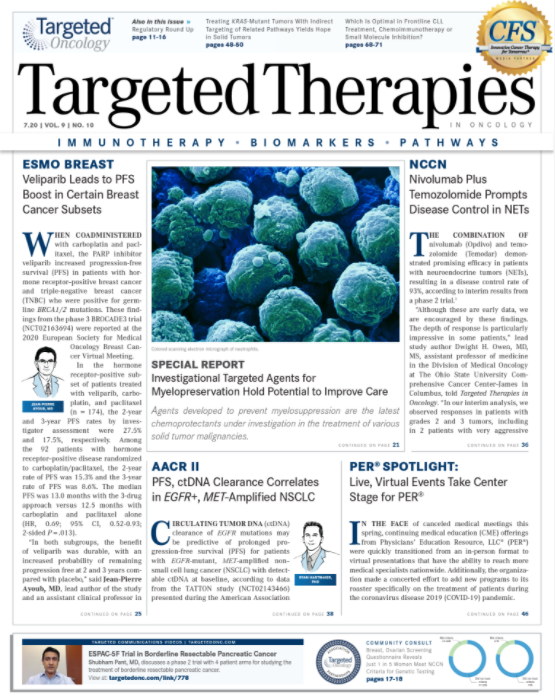Educational Interactions Among Oncologists Remain a Subtle Loss During COVID-19 Pandemic
Exciting new knowledge and a more exquisite understanding of the role of tumor cell biology and the tumor microenvironment have driven the fields of precision oncology/genomics-based medicine and immuno-oncology/cancer immunotherapy.

Two areas of science have been developing in parallel: precision oncology/genomics-based medicine and immuno-oncology/cancer immunotherapy. Exciting new knowledge and a more exquisite understanding of the role of tumor cell biology and the tumor microenvironment have driven both fields. This progress has resulted in the identification of receptor ligand targets at the cell surface for antibody therapies or dysregulated intracellular pathways, which small molecules for precision oncology can target.
However, these approaches now have unique and important clinical implications. First, key cancer immunotherapeutic targets, such as the PD-1, PD-L1, and CTLA-4 pathways, are targetable across many cancer types, and the mechanisms appear to be the same, thus expanding the number of candidates for treatment with those therapies. Oncologists, with their understanding of the PD-1/PD-L1 or CTLA-4 pathway, along with the immune checkpoint concept, can then apply that knowledge to a broad range of cancers in a relatively straightforward way.
In contrast, genomics-driven, precision oncology has the opposite effect, segmenting and subdividing cancers into smaller subgroups in which treatments are paired with genomic subtypes. This has led to an ever-growing and more extensive scientific demand on the community oncologist, who may not focus on a particular cancer type or be able to remain up-to-date on every new pathway or signaling network being targeted.
Indeed, drugs, such as the small molecule tipifarnib, have recently shown clinical activity in tumors with certain RAS mutational subtypes is a good example. Individual RAS mutations are paired with different drugs (G12C targeted by AMG 510) in various cancers, and this may occur in lung, pancreatic, and colorectal carcinomas, to name a few. Thus, although these are fascinating times with great potential clinical benefit for patients, community oncologists must attempt to keep up with early research, which is important but often gets into the weeds of the science and targetable pathways.
The complexity of these novel therapies and their tumor biology underpinnings raise even more concern during the coronavirus disease 2019 (COVID-19) pandemic because in-person continuing medical education (CME) meetings have gone online and may be harder to follow. Attending the American Society of Clinical Oncology, the American Association for Cancer Research, the Society for Immunotherapy of Cancer, and other specialty organization meetings is a staple for community oncologists trying to keep up with these fascinating advances with direct patient implications and treatment and management recommendations. We need to understand the impact this may further have on the oncology community because the pace of discovery has amplified the importance of understanding the science behind the new drugs as well as knowing how to use them safely and effectively. The community has underscored the loss of early detection through delayed screening during COVID-19. Now we must realize that unfulfilled CME interactions and information transfer may also be a consequence to overcome until we can return to large meeting rooms and lecture halls. The struggle to keep up with the pace of these exciting areas of translational and clinical oncology, in an effort to understand the targets as well as the specific targeted therapies, may be an impact of the COVID-19 pandemic.
<< View more regarding COVID-19

Survivorship Care Promotes Evidence-Based Approaches for Quality of Life and Beyond
March 21st 2025Frank J. Penedo, PhD, explains the challenges of survivorship care for patients with cancer and how he implements programs to support patients’ emotional, physical, and practical needs.
Read More